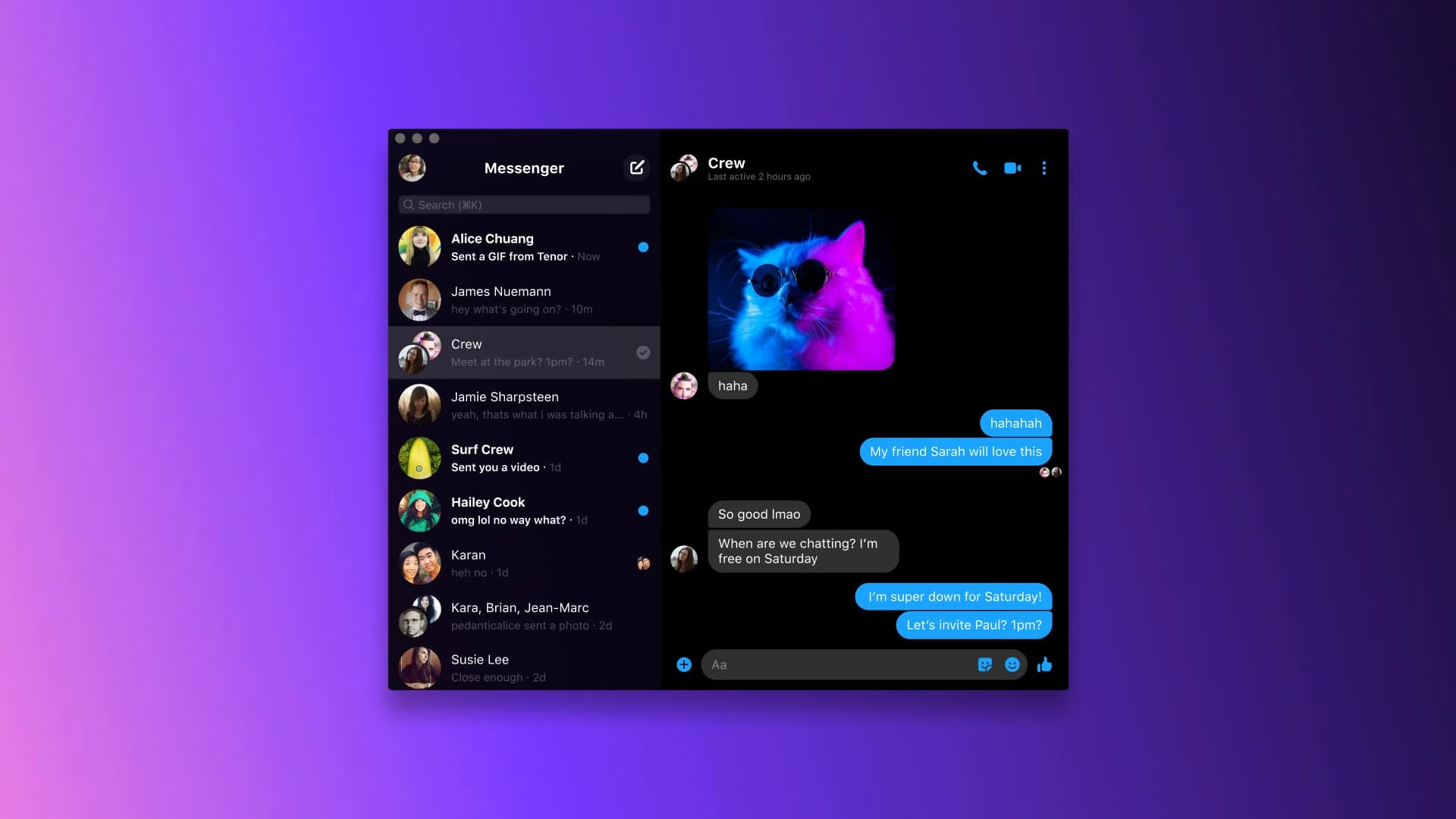The End of an Era: Meta Kills Off Messenger's Mac App
It's official, folks: Meta is pulling the plug on its native Messenger app for macOS. If you've been relying on the dedicated desktop application to keep up with your chats, brace yourself. Come October 31, 2025, that app you've grown accustomed to will simply stop working. Meta announced this quiet yet significant change via a support page update earlier this month, followed by in-app prompts for users starting mid-October. A bit of a shock, isn't it?
For many Mac users, particularly those who prefer a native application experience over a browser tab, this news is hardly welcome. The official word from Meta? They're "focusing on improving Messenger across other platforms." That's about as specific as it gets, which, frankly, leaves a lot of room for speculation. We're talking about a popular messaging service with over 1.3 billion monthly active users globally, and one segment of its user base is being told to move along.
Unpacking Meta's Silent Strategy: Why the Shutdown?
What Now, Mac Users? Navigating the Transition
The immediate question for affected users is, naturally, "What do I do now?" Meta's official recommendation is to switch to the web version at messenger.com or continue using the Messenger apps on iOS or iPadOS. And that's fair enough for many. The web version has seen considerable updates, boasting features like AI chat themes, improved voice-to-text, and even integration with Instagram DMs. Plus, it plays nicely with Meta's new AI glasses – something the old Mac app never would have done.
However, for a dedicated subset of users, particularly those who rely on the nuances of a native app for their workflow, this is a definite downgrade. Think about the menu bar integration, system-level notifications, or perhaps just the psychological comfort of having a dedicated icon in your dock. Power users, like designers or writers (who often live on their Macs), are already voicing their frustration on Reddit and X. Many complain the web version can be slower or less responsive, especially on older M1 Macs. While Meta has hinted at potential Progressive Web App (PWA) enhancements for macOS, like better offline caching, will it truly replicate the native feel? That remains to be seen. In the meantime, some folks are exploring third-party multi-app messaging clients like Franz or Rambox, which at least consolidate different chat services into a single interface. But it's not quite the same, is it?
Broader Trends and What's Next for Meta's Ecosystem
This isn't just about Messenger; it's a microcosm of a larger trend. Across the industry, there's a discernible lean towards web-based solutions over native desktop applications. Companies like Slack and Discord have increasingly optimized their web interfaces, suggesting that the future of many communication tools might lie in highly capable browsers. For Meta, this move could be about more than just cost-cutting; it might be about consolidating their ecosystem around cross-platform consistency. If the web version can offer most of the functionality and receive updates faster, perhaps the rationale for a resource-intensive native app diminishes significantly.
This decision, while seemingly minor, gives us a glimpse into Meta's strategic priorities for the coming years. They’re streamlining, yes, but they’re also focusing resources where they believe the biggest impact can be made—and right now, that's firmly in the mobile, web, and AI realms. Will other legacy native apps from Meta eventually face a similar fate? It’s something to keep an eye on. For now, Mac users will need to adapt, and perhaps reluctantly, embrace the browser tab.
